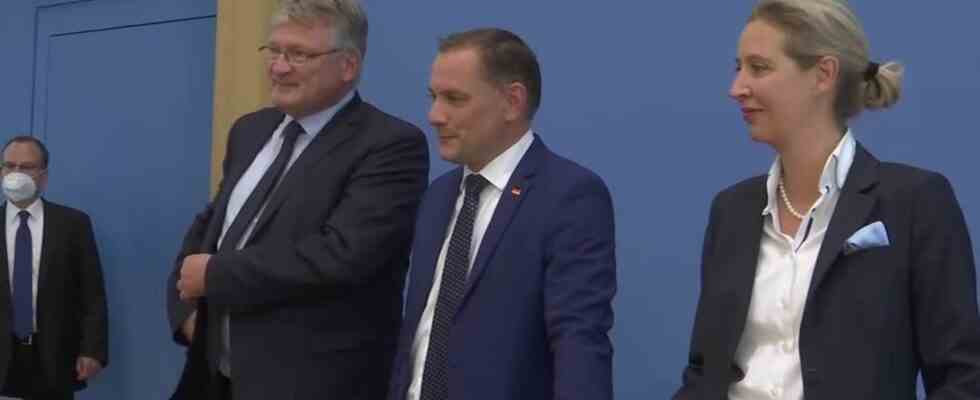STORY: When the AfD was founded ten years ago, the established parties smiled at it. Because the opponents of the euro and later of migration were loud, but could not intervene in the political dynamics. But today, according to surveys, the right-wing party has more than 20 percent approval in all five eastern German states. According to the experts, the party has become radicalized along the way and has moved further and further to the right. At least since the refugee crisis of 2015, the AfD has appeared primarily as a right-wing populist party. The political scientist and right-wing extremism expert Hajo Funke is not surprised by this development: “Yes, this economic-nationalist orientation was already right-wing conservative and there were already people who wanted more. And that includes Gauland, who then of course also joined of the movement of this party himself further radicalized, but very early on decided to form the wing together with Höcke. And the wing is a movement opposition party, a fundamental opposition movement party, says Höcke. That means the alignment to the right of the CDU was since indicated at the beginning.” The influence of the right wing camp grew more and more. The driving force was the state associations in the East German states with the figurehead Björn Höcke. Leading founding members such as Bernd Lucke were deregistered and withdrew: “In a certain sense, Lucke became a victim of the right. He had something in between. He was also an economics professor. And if you only care about economics as a professor, “You have a problem. Because if you want to become a people’s party, you have to want to represent the entire spectrum on the right. Mr. Lucke failed to do that. And that’s also because the potential was always there further to the right and is looking for its place. ” And even if none of the other parties want to form a coalition with the AfD. According to the experts, the party has established itself, especially in the east. They have a solid base of voters who have a connection to the party and vote for them out of conviction. Overall, the statics of the party landscape in Germany have changed as a result – and the tone of the dispute has sharpened decisively.

